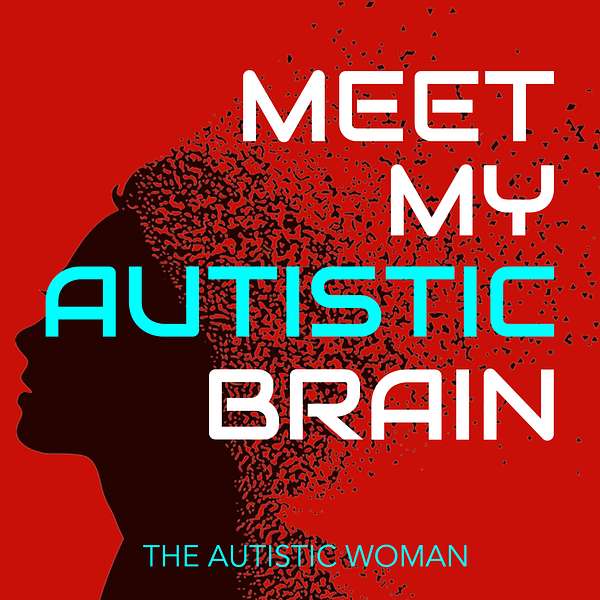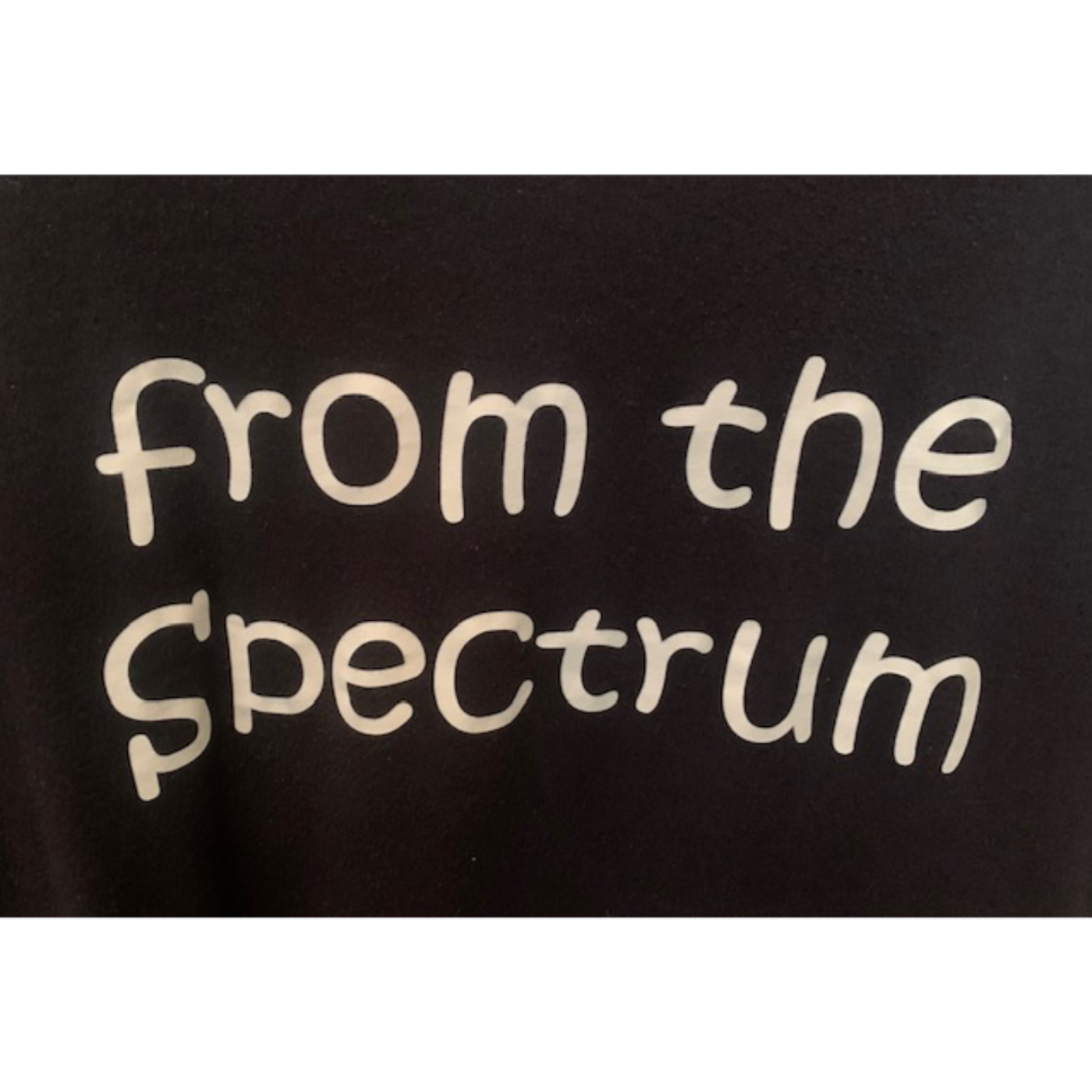
Meet My Autistic Brain
What is it like to find out late in life that you are autistic? The Autistic Woman talks about life experiences and how autistic traits affect her as an adult. You'll hear personal stories, opinions about research and the importance of autistic voices. Includes some fun stuff too and interviews of autistic guests! This podcast is primarily for adult autistics and their family and friends. It's one of the top 0.5% most popular shows globally as ranked by Listen Score with more than 1,000,000 downloads.
Meet My Autistic Brain
Context Sensitivity
Researchers say autistics miss context in communication by taking things literally. Non-autistics often communicate using innuendos and assumptions. Whose responsibility is it to make meaning clear - the speaker or the listener?
Please take a moment and rate/review the podcast. It takes seconds to rate it and just a minute to review it. By doing so you help make this content available to more autistics.
Twitter: @anautisticwoman
Email: info@theautisticwoman.com
Website: theautisticwoman.com
Linktree: https://linktr.ee/theautisticwoman
PayPal: info@theautisticwoman.com
This is a great autism resource for late-diagnosed autistic adults. Now rated in the top 2% globally!
I appreciate autistic voices. Here are some other shows you might enjoy:
Woodshed Theory https://www.youtube.com/c/WoodshedTheory Neurodivergent Rebel https://www.youtube.com/c/NeurodivergentRebel
Autism from the Inside https://www.youtube.com/c/AspergersfromtheInside
Atypical: The Podcast https://podcasts.apple.com/us/podcast/atypical-the-podcast/id1616707343
Sunsama free trial: https://try.sunsama.com/xi4blkokndgk
RATED IN THE TOP 0.5% GLOBALLY with more than 1,000,000 downloads!
If you are an autistic person who has written a book about autism or if you have a guest suggestion email me at info@theautisticwoman.com.
Instagram
Ko-fi, PayPal, Patreon
Linktree
Email: info@theautisticwoman.com
Website
My most memorable experience with context sensitivity was in grade school. We were going to take a school trip to go creek hiking. The teacher told us to bring a pair of shorts and a pair of pants for the hike. That was a time when wearing pants over shorts was a thing so that’s what I did.
As we were hiking in the creek I slipped on a rock and fell into the water soaking the pants. My teacher asked me where my shorts were and I said I’m wearing them.
That was when I found out that the reason you bring two pairs is in case you fall in the water so you’ll have something dry to wear.
This episode is about context and context sensitivity which has also been called context blindness.
If you’re autistic you’re probably familiar with “the look” you get when you understand something differently from others.
I had assumed that one point of creek hiking was to get wet. In Arizona if clothes get wet in the summer the water evaporates so quickly that it makes it feel cooler.
I would imagine that the creek story is an example of context sensitivity. Couldn’t the teacher just have explained that in advance? Was it my context she wasn’t sensitive to?
Take a moment and consider this statement: 63 degrees F (17 degrees C) is uncomfortably warm. In Iceland yes, in AZ it’s cold.
The brief moment after you heard the sentence, your brain recognized the incongruence and searched for a way to make sense of it. What it needed is called context.
Some believe that autistics are context sensitive saying our brains are unable to see how one variable influences another. In my experience autistics seek to know and understand and that drives the desire for accurate context.
Two scientists have come up with the term caetextia as a name for context sensitivity. They believe it to be the predominant feature of autism.
Their hypothesis is unproven, in other words, it’s speculation.
What is context in language?
Definition of context: the words that surround other words and impact their meaning
Within the scientific study of language are two categories that are relevant here. Pragmatics and semantics.
Pragmatics is what speakers mean by what they say over and above what the words literally mean, Pragmatics is how context contributes to meaning
Pragmatics is
a.what is implied by the speaker -
b.Relevance - framework for understanding the interpretation
d. The nature of the Conversation
e. Non-verbal communication-
Trivia: Non-verbal communication was first studied by Darwin in 1872
Semantics is also important.
2. Semantics - def: literal meaning of sentences; conceptual semantics is the most basic concept and form of a word before our thoughts and feelings added context to it.
a. Relationship to Pragmatics - they go hand in hand
An example: Two men are standing together talking. One says “Hey Bob, look at that cougar.” Are they referring to the animal or a woman who dates younger men? Since there’s more than one way to interpret that context is needed.
2. We hear that autism is a deficit in social communication and researchers say that’s why we have problems with context. But it’s more than social communication that forms context.
In our daily life context can be confusing in text messages. People may misinterpret the sender’s intent or meaning. This might account for the use of emojis.
If you get a text from a friend that says I moved to my new place today, they might mean they are happy because they love their new home or that they’re sad to leave the old one. Attaching an emoji may give context.
It’s not only autistics that misinterpret texts, I think it’s relatively universal. And it’s because we can’t necessarily predict how the other person will attribute meaning to what we said.
Other things beyond the spoken words such as cultural, historical, ideological, personal and sociological:
Cultural - beliefs and values
Context may be culturally dependent. Not all cultures share the same beliefs and values and even within a culture those can vary. Cultural contexts are different in New York from those in Kentucky.
Historical influence - how the past influences the present, whether things are the same or different and how and why they are
Ideological - Faith or religion, political party, economic beliefs, environmental, ethics (which vary)
Personal - A person's internal environment, derived from factors such as sex, gender, age, mood, and cultural identity, support systems, personal experience.
We each have our own way of thinking and perceiving the world. Context is viewed through the lens of the total of our experiences, autistic or not.
Social - rules and expectations, the specific setting in which social interaction takes place.
Examples of social context might be, at school, at a party, at church,
Is context learned? Did you intuitively know you are supposed to be quiet in a library before the librarian told you? What about museums? I remember a time when they were quiet places.
When I want context it’s because I want to be accurate in my understanding. Writers provide context clues to the meaning of the words in their stories. They recognize that in order to be understood they must give their words meaning rather than expect the reader to assume it. Writers have the responsibility to provide context.
Poor sentence structure affects how words are understood. Like this sentence: “Bob saw the man with binoculars”
Did Bob use binoculars to see the man or did he see a man who had binoculars?
I often hear these mistakes on the news or in headlines.
How about a sign that says: “Tables are for eating customers only.”
These are grammatical errors that make meaning unclear without context.
Some examples in the law would be:
Self-defense which requires context to be effective;
Speeding the law says to proceed at a speed that’s reasonable and prudent based on the existing conditions. People who get tickets either ignore or misinterpret the context.
There are questions on autism tests which lack context. Take a question that asks “I prefer to go to museums over going to the theater”
Sure, there are times when I prefer one over the other. Which time is the question referring to? I need more context or I want to answer “it depends.” Meaning it depends on the context.
Does anything have an absolute meaning? Nothing exists in isolation. It exists in relation to other things, in context.
Pragmatics, semantics and the individual parts of context can be taught. I’d say that even as adults we continue to learn new contexts as we become aware of differing political views or religions or cultures.
Studies of context sensitivity relate to children typically around 4-5 years of age. Researchers believe that’s the age when a child becomes aware of context. Would replicating these studies in adults have the same results?
Many autistics want to know the why of something before doing it. I’ve found that particularly when I go to the doctor.
If I’m given a prescription I might decide I don’t want to take it without telling the doctor because of the side effects or cost.
Later I find out the consequences of ignoring what I was told. I’ve now learned to ask “what will happen if I don’t take this medicine?”
Once the doctor explains it to me it gives me context and I trust what was said. Should I have to ask or could the doctor given me the information when prescribing medication?
I’d say autistics are pretty good at semantics, in fact, we might correct someone who uses words in a non-literal way and hear “it’s a question of semantics”.
I haven’t heard anything more than speculation that context is the same as theory of mind although there is some disagreement among researchers. Any perceived difficulty with pragmatics is not due to a lack of theory of mind, rather, it’s a request for adequate information.
I wonder if the speaker is the one responsible to provide context rather than the listener. In my experience I find there are times when I need more information than I’m given. I’m learning to notice it and ask for it.
Each person and situation is different so you have to decide whether you misunderstand context based on your own experience. This thing that’s been called the predominant feature of autism might disappear if a non-autistic provided adequate context in their communication. It’s something to think about.
And when you’re creek-hiking as a kid are you supposed to know that you need a second pair of pants in case you fall into the water?
Maybe?
Don’t hesitate to contact me. I’m on Twitter at @anautisticwoman or you can email me at
You can support the podcast by subscribing, liking, tweeting, rating, reviewing, telling your friends and becoming a patron on Patreon. Check out some other episodes while you’re here.
This has been MMB - AFGTA, I’m the Autistic Woman. Slava Ukraine!
Podcasts we love
Check out these other fine podcasts recommended by us, not an algorithm.

Atypical: The Podcast
The Atypical Crew

